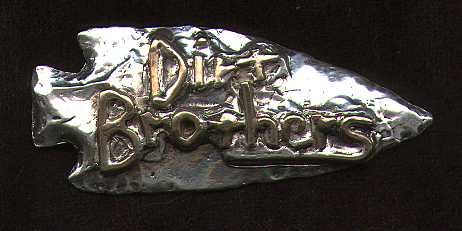
Focus of the excavation is a cellar hole discovered
by Colonial Williamsburg
architects in 1954 while trenching for foundations.
A Dirt Brother Goes Historical:
Digging The Ravenscroft Site at Colonial Williamsburg
By Joe Roberts
Dept. of Anthropology, College of Willam & Mary
Since leaving behind good old Texas prehistoric archaeology for
historical archaeology on the East Coast, I've found plenty of exciting
research to pursue. Iíll grant that the mystique of the prehistoric
era
is great, but having written records to underpin interpretation
sure
opens up new worlds of thinking about archaeological evidence.
Plus, even in well-documented contexts, written records run out at
some
point and then the only way to more fully understand the past is
to pick
up a shovel and dig! There are plenty of exciting archaeological
mysteries in historical archaeology too, thatís for sure! I'm working
on
a very intriguing site right now, in fact.
My summer project up here in Virginia is an exhibit dig in Colonial
Williamsburg on an interesting 17th/18th century site. Focus
of the
excavation is a cellar hole discovered by Colonial Williamsburg
architects in 1954 while trenching for foundations. During this
early
probe, the diggers found some roofing tiles that date back to ca.
1660,
which suggests an occupation predating the town of Williamsburg,
back to
the Middle Plantation days.
The brick cellar hole may well be a later (ca.1700) addition to an
earlier wooden structure, since the North side of the feature includes
a
fireplace hearth that points AWAY from the cellar. Weíll be looking
for
post holes and other evidence of this wooden structure, and trying
to
determine the uses of the site throughout the 17th and 18th centuries. |

